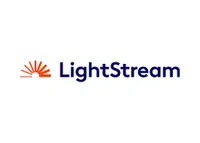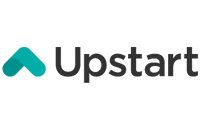How to get a $30,000 personal loan

Key takeaways
- You can get a $30,000 personal loan from banks, credit unions, online lenders and peer-to-peer lenders.
- Eligibility requirements vary by lender, but for a loan this size, you’ll likely need a good credit score and a high enough income to qualify for the best rates.
- Prequalifying is key to finding the best offer. You’ll be able to see the terms and interest rates available to you without impacting your credit.
You might need $30,000 for a large medical expense, a major home project or a bigger luxury purchase. Luckily, $30,000 personal loans are fairly common. A wide variety of lenders offer $30,000 personal loans, including banks, credit unions and online lenders.
Since this is a larger loan, you will likely need very good credit or a cosigner to get a loan with bad credit. However, shopping around and prequalifying can help you get the best rate for your situation.
The best $30,000 personal loans
Different lenders may have better rates or terms, or they may cater better to certain credit scores. For instance, banks tend to have stricter requirements than both credit unions and online lenders.
Online lenders tend to be more lenient, but if your credit needs work, your loan may come with higher rates and fees. That said, those with excellent credit could receive a low rate.
Here are some options to consider when shopping for a $30,000 personal loan.
| Lender | APR | Loan amount | Minimum credit score |
| LightStream | 6.49%-24.89% (with autopay) | $5,000–$100,000 | 660 |
| Upgrade | 7.74%-35.99% (with autopay) | $1,000–$50,000 | 600 |
| SoFi | 7.74%-35.49% (with autopay) | $5,000–$100,000 | No requirement |
| Upstart | 6.50%-35.99% | $1,000–$75,000 | No Requirement |

Best personal loans of 2025
Explore Bankrate's top picks for the best personal loans to find the right lender for you.
Learn more
LightStream
Bankrate's view
LightStream, an online lender, has some of the best rates in the industry. The lender is best suited for those with excellent credit and strong financials. LightStream loans can be used for practically any purpose, and borrowers can receive the funds as soon as the same day they apply. This lender is also one of the few that doesn’t charge any fees, making its loans cost less than most.

Pros
- Low rates with Rate Beat program
- No fees
- Same-day funding

Cons
- No prequalification
- Good credit required
- Long credit history needed

Upgrade
Bankrate's view
If your credit isn’t in mint condition, it may be easier to qualify for a $30,000 personal loan with Upgrade. It has a lower minimum credit score requirement of just 580, but even more notably, it offers joint and secured loans. This could make it easier for borrowers with imperfect credit to secure a large loan with a competitive rate.
However, you’ll pay an origination fee of up to 9.99 percent, and you can expect rates as high as 35.99 percent if you have a low credit score.

Pros
- Available to borrowers with bad credit
- Joint loans available
- Option for direct payment to creditors

Cons
- High maximum APR
- High origination fee

SoFi
Bankrate's view
SoFi offers $30,000 personal loans with repayment terms of up to seven years. It has competitive interest rates with zero mandatory fees — but to qualify for its lowest rate, you may need to agree to an optional origination fee of up to 7 percent. Borrowers can get the funds as soon as the same day they’re approved, so SoFi may be a good choice in a crunch.

Pros
- Same-day funding
- Co-borrower option
- No required fees

Cons
- Must borrow at least $5,000
- Not available in all states

Upstart
Bankrate's view
Upstart may be a good fit for those with little to no credit history. Instead of only considering your credit score, the lender also evaluates alternative factors, like career and education background. That said, Upstart’s top-end interest rate is high and it charges origination fees of up to 12 percent of your loan amount, so if you have bad credit or are new to credit, your loan may be expensive.

Pros
- May qualify with no or bad credit
- Low minimum APR
- Prequalification option

Cons
- High maximum APR
- Steep origination fee
- Only two repayment term options
How to get a $30,000 personal loan
The process for getting a $30,000 loan is similar to applying for most other types of loans. To streamline the process, gather your income and identity verification documents before applying.
- Check your credit. This will help narrow down the list of lenders to those that can offer loans for your situation.
- Prequalify with at least three lenders. This will allow you to compare realistic offers side-by-side without impacting your credit.
- Run the numbers. Check the different offers against your monthly budget to ensure you choose a loan you can afford.
- Select your offer and wait for a disbursement. When selecting an offer, look closely at perks like zero fees and discounts that can make your loan more affordable.
Common personal loan requirements
Though many lenders offer loans larger than $30,000, borrowing this kind of money isn’t a small feat. To qualify, you’ll likely need to clear the following hurdles:
- A good credit history: Lenders will check your credit score and payment history by running a hard credit inquiry. This allows them to check your history from the past seven years for on-time payments. For a $30,000 loan, the best personal loan lenders have varying requirements.
- A sufficiently high income: While evaluating your loan application, your lender will look at your income to determine whether you can afford the payments. Each lender has different income requirements, so talk to different lenders to find one that will work with your income level.
- Debt-to-income ratio: Another factor lenders use to determine your ability to repay the loan is your debt-to-income (DTI) ratio. This is a number they calculate by adding together all your debt and dividing it by your pre-tax income. Though some lenders may work with higher DTI ratios, it’s best to have a DTI below 36 percent for larger loans.
- The documents to prove it all: Your lender will require documentation to verify your income and residency. Personal loan documents typically include proof of identity, proof of address and employer and income verification documents like pay stubs.
Long-term costs of a $30,000 personal loan
When you borrow any loan, you agree to pay interest. Over the life of your loan, you will repay the amount you borrowed, plus any interest that accrues. The interest rate on your loan and the time it takes pay down the loan’s principal amount will determine your loan’s total cost over time.
For example, let’s say you take out a $30,000 loan with an annual percentage rate of 8.99 percent. Note that you need an excellent credit score to qualify for an 8.99 percent rate. Here’s what you’ll pay monthly and in interest over the following loan terms:
|
Monthly payment |
Total interest cost |
|
|
36 months |
$954 |
$4,339 |
|
48 months |
$746 |
$5,828 |
|
60 months |
$623 |
$7,356 |
|
72 months |
$541 |
$8,924 |
A five-year repayment term gives you a more affordable monthly payment, but it also means you’ll pay over $3,000 more in interest over the life of the loan than you would if you opted for a three-year term. The best loan is the one that offers the lowest overall cost of borrowing with a monthly payment you can reasonably afford.
How to determine whether you need a $30,000 loan
Personal loans can be used for virtually anything, and there are several reasons you might want to apply for one. Some of the most common reasons for personal loans include:
- Wedding
- Education
- Home renovations or projects
- Consolidating debt
- Vacation
- Financing a vehicle
You want to ensure a loan of this size is a good idea. Some of the best uses for a $30,000 personal loan might be consolidating multiple debts into one loan with a lower interest rate. Also, investing in home renovations with a loan like this may be a good idea because it will likely raise the value of your home and increase your equity, making you money in the long run.
On the other hand, going into debt to make a luxury purchase or go on vacation may not be wise, since you’re paying interest and risking defaulting on a loan for something that’s pure luxury.
No matter what you decide, know what you are getting into. Use a loan calculator to preview your monthly payment and ensure it fits your budget. Then, manage your finances so you can pay off your loan within the specified repayment period.
Alternatives to borrowing a $30,000 personal loan
Consider these alternatives if a $30,000 personal loan isn’t a good fit:
- Home equity loan: If you owe less than your home is worth, you could qualify for a home equity loan with a low rate. They typically offer more competitive rates than personal loans, but expect a loan term of up to 30 years and steeper borrowing costs over time. But remember: If you default on the loan, you could lose your home to foreclosure.
- Personal line of credit: You can opt for a line of credit if you want more flexibility. Like a credit card, you draw funds up to the limit as needed. You don’t have to put your home up as collateral and are only charged interest on the amount you borrow. Interest rates on personal lines of credit are variable, making it challenging to predict total borrowing costs.
- Saving: If you have time before you need funds, consider saving to reach your goal. While it can be tough to save on a tight budget, it can be worth it in the long run since you’ll avoid spending money on interest.
Bottom line
Taking out a $30,000 personal loan can be helpful if you use it wisely. Remember that loans for projects like home renovations, which could add to the value of your home, are considered good debt. Personal loans for expenses like vacations or weddings are riskier for your finances.
If you plan to take out a loan of this size, make sure you understand the cost. Shop around and compare lenders to find the best personal loan rates. Banks and online lenders offer a range of options to help provide a $30,000 loan, greatly simplifying the process and helping you get the funds that you need.
Why we ask for feedback Your feedback helps us improve our content and services. It takes less than a minute to complete.
Your responses are anonymous and will only be used for improving our website.
You may also like

$15k personal loans: Everything you need to know


How to get a $40,000 personal loan



